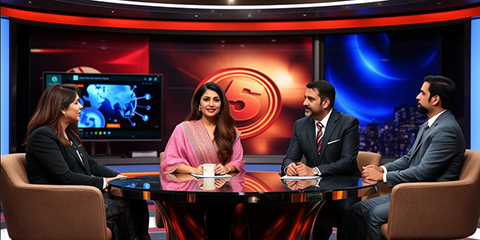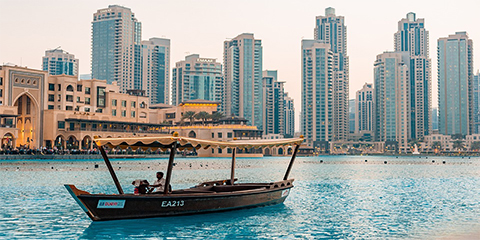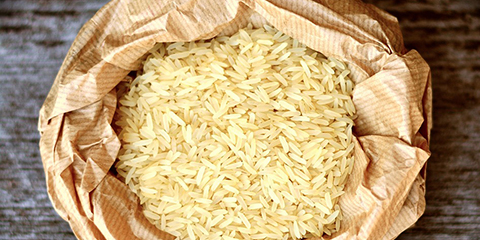Risking all: Dangers faced by Pakistani journalists in pursuit of truth
JournalismPakistan.com |
Published 13 years ago | Shahzada Irfan Ahmed
Join our WhatsApp channel
The Pakistani media has a come a long way over the years. From an industry comprising a handful of newspapers and a couple of news channels, of which two were state-owned, it now has close to 100 TV channels covering sports, local and international news, entertainment, religion, fashion, and so on.
The previous government and the incumbent can take credit for this growth and for freedom of expression. But the freedom has come at a cost. Though free to report on issues tabooed in the past it has to deal with the consequences of treading into dangerous zones.
There are pressures, unwritten codes, self-censorship policies, etc, to observe while reporting, editing and publishing or airing. The more adventurous have to be ready for punishment, which may even be death.
Imran Naeem, who runs the website JournalismPakistan.com says: “The pace of journalism appeared laidback before the arrival of the many television channels about a decade ago. It is now in Grand Prix mode, which means a mad dash to be first.”
To this end, journalists must be where the news is in a flash and report, no matter how harsh or dangerous the conditions. There have been instances of journalists rushing to the scene of a bomb blast, only to lose their lives or be maimed in a second explosion.
Imran observes that more journalists have been killed, been injured or disappeared in Pakistan than any other country. “Those who live to tell the story may lose their jobs, face death threats, get beaten up or even framed for doing something they never did, from petty theft at the office to blasphemy, punishable by death.”
The pressures start inside the office, the outside threats showing up much later. First, journalists in Pakistan are not well paid. To make matters worse, salaries are routinely delayed, even in some big media houses.
Then there’s the extraordinary workload. There are organizations, according to Imran, where they have to work for 16 hours at a stretch when major events break. They are on call through the day, and night, just in case. Their contracts do not say this and they are not offered extra benefits for these duties.
First published by http://fountainink.in/
Read more here
Dive Deeper
From Pakistan Times to Google News: The story of journalism’s digital transformation
October 26, 2025:
A veteran journalist reflects on the decline of newspapers, the rise of digital news, and how technology forever changed the rhythm and rituals of journalism.
Inside the editorial reforms that changed Pakistani broadcast journalism
April 28, 2022:
Muhammad Ibrahim Raja’s ethical reforms transformed Pakistani television journalism, protecting victims, ensuring safety, and promoting accountability across newsrooms.
Kaleem Omar: The literary legacy of Pakistan's most influential poet and journalist who shaped English poetry
September 25, 2025:
Discover Kaleem Omar's profound impact on Pakistani literature, from Lucknow to Karachi, his poetry and journalism shaped a nation's literary voice through exile and memory.
Honoring Razia Bhatti: The fearless editor who challenged Pakistan's power elite
August 15, 2025:
Remembering Razia Bhatti, the fearless Pakistani journalist and Newsline founder who died at 52 fighting for press freedom. Her legacy of courage in journalism continues to inspire media professionals worldwide.
From newsroom to UN: Dr. Maleeha Lodhi's historic journey as Pakistan's first woman diplomatic pioneer
August 14, 2025:
Discover the remarkable journey of Dr. Maleeha Lodhi, Pakistan's pioneering diplomat who broke barriers as Asia's first woman newspaper editor and served as ambassador to the US and UN Permanent Representative.
Puppet Press: How Pakistan's media sold its soul to the highest bidder
March 24, 2025:
Explore the 10 critical reasons why Pakistan's legacy media continues to disappoint, from political bias and corporate influence to digital transition failures and unsustainable business models in Pakistani journalism.
Recycled guests and repeated narratives: The talk show problem in Pakistan
September 07, 2024:
Pakistani media is under fire for its lack of investigative reporting, political influence, and censorship. With talk shows becoming monotonous and biased, the public is turning to digital platforms for real news. Read on to learn how Pakistani journalism is failing its people.
Censorship and career: Working as a journalist in the UAE
July 11, 2024:
Explore the challenges and opportunities expat journalists face in the UAE, with insights from Imran Naeem Ahmad, a former Gulf News journalist. Discover the impact of censorship, career prospects, and the reality of working for leading newspapers like Khaleej Times and Gulf News in Dubai.
















